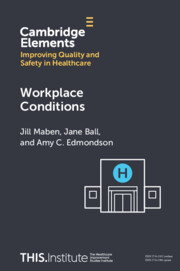2 results
Assessing the job preferences of senior medical students for mandatory service: a discrete choice experiment
-
- Journal:
- Primary Health Care Research & Development / Volume 25 / 2024
- Published online by Cambridge University Press:
- 31 May 2024, e31
-
- Article
-
- You have access
- Open access
- HTML
- Export citation

Workplace Conditions
-
- Published online:
- 11 January 2023
- Print publication:
- 02 February 2023
-
- Element
-
- You have access
- Open access
- HTML
- Export citation

